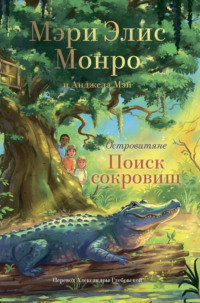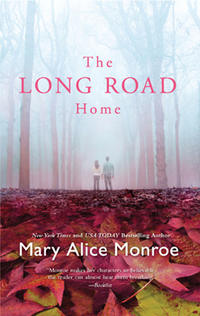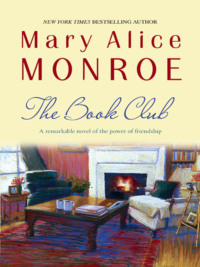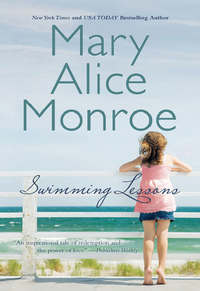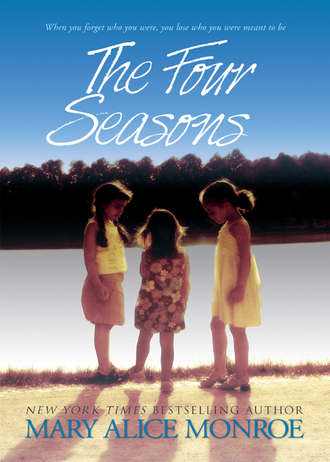
Полная версия
The Four Seasons
His shook his head. “And you relented….”
“Who doesn’t with Jilly?”
“Well, even you can’t order a blizzard around.”
Birdie chuckled then pursed her lips, considering her options. Her first priority was to get to Evanston and make certain the funeral arrangements she’d spent hours—days—on the phone making were going smoothly. She rested her hands on the counter and leaned against them. “God, this is going to be a nightmare. Who knows what to expect from her? Do you remember the scene Jillian made at Mother’s funeral?”
He shrugged. “Jillian lives to make a scene. I don’t see what the commotion is about. She’ll arrive in a state, stay long enough to make another scene, then leave and we won’t see her for another ten years. God willing.”
“I don’t see why you dislike her so. She’s never done anything to you.”
“She doesn’t have to. It’s what she does to you that makes me dislike her.”
“What do you mean?” Birdie replied, genuinely surprised. Dennis never made any pretense over the fact that he didn’t like her more glamorous sister.
“She puts you on edge,” he replied, looking Birdie directly in the eye. “She makes you feel somehow less.” He lowered his gaze. “You’re not the same whenever she’s around.”
Birdie wanted to tell him that was because he was never the same when she was around. Dennis had dated Jilly for a brief period in high school, something Birdie never felt comfortable about. Neither of them ever mentioned it, but sometimes, when he didn’t think anyone was looking, she caught him gazing at Jilly with an odd expression on his face. She’d wondered if the gaze was merely speculative, or, and she shuddered to think this, if it was lust she saw under his heavy, hooded eyes.
“If she makes me feel less,” she replied, loading ice blocks into the cooler, “it’s only in the arena of beauty. Let’s face it. Jilly is gorgeous.”
“So are you.”
“No, I’m not.” She wasn’t being coy. Birdie knew that age and the additional twenty pounds that crept on over the past decade had not improved her already large frame. In the looks department, nothing she had could compare to Jilly. Birdie’s eyes were pale blue, not a vivid green like Jilly’s. All she had of the famous red Season hair were a few red highlights in the dull brown. Worst of all, she had her father’s nose. He told her to be proud of the aristocratic though slightly askew family inheritance, and in fact, she was. But it did nothing to enhance her beauty.
“You are to me.”
When he said things like that Birdie’s heart did a quick flip and she felt a sudden gush of love for him. She turned and busied her hands rinsing a few cups in the sink, flustered. “That’s sweet. But really, Dennis, I’m over forty years old and a success in my own right. I don’t need to pretend I’m beautiful for my self-esteem.”
Dennis just shook his head sadly.
She turned off the water and made a snap decision. “We’ll skip the airport. I’ll call Rose and see what else can be arranged. But we’ll still have to leave early in this storm. Where were you, anyway?” she asked, turning to face Dennis. “You said you’d be home by twelve.”
“What time is it now?”
“It’s almost three.”
He shrugged and raised his brows in a gesture of innocence. “I had a lot to do to leave town for several days. Midterm grades need to be averaged before spring break. Then there was an emergency meeting with the chairman.”
He loosened his tie and tugged it off with a frustrated yank. “I got out as quickly as I could.”
“Didn’t it occur to you that I’ve got a lot to do, too? While you were arranging your schedule, I was doing the same plus shopping for the trip, packing up and taking the dog to the kennel.”
He turned his back to her and grabbed the beer bottle from the counter along with the stack of mail. “Well, we can’t all be as efficient as you.”
She felt the sting of his words as she watched him lean casually against the counter and sift through the mail as though he had all the time in the world. He could be oblivious to everyone’s needs but his own, she thought. Hannah may not have inherited his lean physique, but she had certainly inherited his temperament.
“Where’s Hannah?” he asked, as though reading her mind.
“She’d better be upstairs packing. Would you go up and check on her? I’ve asked her to pack for two days and she hasn’t done it. Now we’ve run out of time and if she’s not done I guess I’ll have to do it.”
“No you don’t,” he replied, looking up from his mail. “If she leaves something out, then she’ll have to live with it.”
“Oh, Dennis, don’t be ridiculous. If I don’t get after her who knows what she’ll wear?”
“Then she’ll be embarrassed. You’re the one who’s always preaching about natural consequences.”
Birdie fumed. She knew he was right, but she just couldn’t bring herself to allow her daughter to be poorly turned out for her sister’s funeral. “Whenever someone sees a poorly dressed child, or walks into a messy house, they never blame the father. It’s always the mother who’s thought of as a slacker.”
“Who cares what anyone thinks?”
“I care!”
“You might as well relax and let her be. She’s fifteen. She’s not going to listen to anything you say, anyway.”
She put her hands up in an arresting position, cutting him off. “We’re not going to get into this right now. I’ve simply too much to do. Could you please just go upstairs and finish your own packing without this big discussion? I already packed your dark blue suit for the funeral. Just pick out some casual clothes. That’s all you have to do.”
“You never like what I pick out, anyway, so why not finish it yourself?” he muttered, but he shuffled up the stairs, anyway.
She bit back a retort and turned on her heel to head for the phone. If she didn’t get some space between them quickly the fuse they’d lit would explode. Lately, anytime they were in a room together it was like putting a match near a powder keg. The tension had really started heating up again in the past few days. Ever since Merry’s death.
Birdie paused to think, Was it only four days ago that Merry had died?
It was a night much like any other night. There had been no premonition of trouble to come. Birdie had always thought she would somehow sense when a loved one was dying, especially someone as close as a sister. She was a physician, after all. She expected that she’d develop some intuition as to when death was imminent. Apparently not, she thought, chagrined. She hadn’t suspected a thing as she crept under the sheets, yawned and murmured good-night to her husband before falling into a deep, undisturbed sleep.
The call from Rose woke her just after 11:00 p.m. Merry’s lungs had filled again with the current bout of flu and she was having trouble breathing. Complications weren’t unusual for Merry. Her lungs had been damaged as a child, making her a high-risk patient. Her doctor had upped her medication and was on his way but Rose wanted to call Birdie for help.
Birdie had risen promptly, dressed, made a pot of coffee and placed a call to her colleague to cover her morning appointments in case she was late getting back. It didn’t take long, not more than forty minutes, to get on the road. When she knocked on the door of the Season family home not even four hours later, Birdie had known instantly that she was too late. Rose met her with grief etched across her drawn face and red-rimmed eyes. Even in her shock, Birdie noticed the calm, even serene cadence to Rose’s voice.
Birdie, our Merry is gone. I know, I know…It was all very sudden and there was nothing that could be done. It caught all of us by surprise. It was her time and she was ready. There, there…It was peaceful, really it was. You know our Merry…. She died with a smile on her face.
Birdie reached a shaky hand up to wipe the tears from her cheek. That was four days ago and she still couldn’t believe her sister was dead. In her opinion, she was allowed to slip away. Rose should have called her to Evanston the minute Merry’s flu worsened. The doctor should have admitted her to the hospital at the first sign of fluid in the lungs. Fury, guilt and sorrow twisted in Birdie’s heart as she wrestled with the issue that kept her awake at night and shortened her temper during the day.
If only she had been faster—perhaps skipped making the phone call or that pot of coffee, if she’d pushed the speed limit on the way down—she might have been able to save her.
Jillian DuPres Cavatelli Rothschild Season reached above her head with a shaky hand and buzzed for the steward. Most of the other passengers were slowly becoming alert, having eaten and napped. But the plane was a mess. The stewards had done their best, but eight hours of togetherness was getting very old and the interior of the enormous plane looked as tired as the 178 passengers felt.
She buzzed for the steward once again. A handsome blond young man in a horrid navy-and-burgundy striped shirt sauntered down the narrow aisle to her seat and mustered a tired smile. He had long, curly lashes that any model would kill for, but from the looks of the circles under his eyes and his bored expression, he was more eager for this plane to land than she was.
“I’d like a Scotch, please,” she said, handing him money. “And some water and ice.”
He paused, furrowing his brows, seemingly trying to gather his last vestige of polite intervention. “We’ll be landing soon, ma’am. Perhaps some coffee?”
Jilly straightened in her seat and delivered one of her famous megawatt smiles. “If I wanted coffee,” she said in a honeyed voice, “I’d have asked for it. What I want is one of those cute, itty-bitty bottles of Scotch and a glass of ice with just a smidgen of water. Please.”
The steward looked severely uncomfortable now, glancing furtively at the old woman in the next seat who was hanging on every word. He stretched across the backs of the row ahead and said in a low, conspiratorial whisper, “You’ve had three already and you didn’t touch your dinner.”
Jilly leaned forward and replied in a stage whisper, “I know. I never eat anything I can’t identify.”
“Are you sure you wouldn’t want some coffee, or perhaps some tea?”
It was embarrassing enough to have to ride in coach again. In first class they wouldn’t have questioned her request. More Scotch? Right away!
Jilly dropped all pretense of friendliness. “What I’d like, young man, is a cigarette. But since you fucking well won’t let me have that, I’ll settle for a Scotch.” She turned to the elderly woman. “Excuse my French.”
She could tell from the way the steward’s lashes fluttered that the slim young man wanted to tell her what she could do with her fucking cigarette and Scotch. Jilly steeled herself, ready for a fight when the little bell went off and the pilot’s voice informed them that he was sorry but that there was heavy snowfall in Chicago and that there would be long delays. This was met with a chorus of groans from the passengers. The steward closed his eyes for a moment and took a breath. When he opened them again, he proffered a perfect steward’s polite smile that said, Forget it, it’s just not worth the aggravation.
“Right away, ma’am.”
Jilly watched him retreat down the aisle as a dozen more lights lit up and hands flagged him as he passed. She hated to be called ma’am, madam, frau or any other sobriquet that implied she was old. Still, she felt a twinge of regret for making such a fuss, but not so much that she didn’t want her drink.
A short while later the little bottle of Scotch was delivered, along with her five-dollar bill. Apparently the flight was in a holding pattern and drinks were on the house. Grumbles were still audible throughout the cabin but the gesture of goodwill went a long way to settle the passengers. “Thank you,” she said sweetly as she tucked the five-dollar bill into her purse. These days, every dollar counted.
“It’s been a long trip, hasn’t it,” the old woman beside her said in a sympathetic voice. She’d introduced herself as Netta. She was doll-like and positively ancient with waxy skin rouged in small circles over her cheekbones. Her eyes, however, were an animated blue that rivaled the sky Jilly had left in Paris.
Jilly could only nod, thinking how it would take longer than the endless eight-hour flight to explain to this woman the journey she’d traveled since she’d received the telephone call from Rose. Hell, just since her last smoke. Until the last boarding call she’d stood in the bar, puffing like a locomotive, storing up nicotine in her cells for the long trip like a camel would water. She’d been in agony anticipating her return to the old Victorian loaded with memories as ancient and musty as the velvet curtains and bric-a-brac. You can’t go home again, the old adage said. She wished it were true. For twenty-six years, she’d tried not to. But here she was, on a Boeing 747, doing just that. Everything she owned was squeezed into two large Louis Vuitton bags and stored in the belly of this plane. She’d had to borrow the money from a friend to purchase the ticket to Chicago—one-way coach.
“Are you all right?” the old woman asked kindly.
Jillian turned her head. She saw genuine concern in the bright blue eyes, not curiosity or annoyance at her fidgety behavior.
“I’m just tired,” she replied, taking her glass of Scotch in hand. “Thanks.”
“Is it your job? I read about stress on working women all the time.”
A short laugh escaped as Jilly shook her head. “No, not the job. Unfortunately.”
“What do you do, if you don’t mind my asking?”
“I’m a model.” She shrugged lightly. “And I was in a few foreign films.”
The woman’s eyes crinkled with pleasure. “I thought so. You’re very beautiful.”
The compliment washed warmly over Jilly and she smiled for the first time that day. “Not so ‘very’ anymore. I’m…retired.”
Her smile fell as she heard again the comments of the agencies. You are still a beautiful woman, but…You’re over forty. You know how it is…. Look at them, they are nineteen! So young!
She couldn’t blame them. Age was an occupational hazard of the beauty business.
“I’m too old,” Jillian said, finding it easy to confess to a stranger.
The elderly woman laughed lightly and shook her head. “How amusing. I was just thinking how I wished I was as young as you!” She reached out to pat Jilly’s hand. “You see how Einstein was right, my dear. Everything is relative.”
“By that you mean the grass is always greener, I suppose.” She didn’t want to add that she didn’t find that the least bit comforting.
“No,” the woman replied. “Actually I was referring literally to the theory of relativity. How different observers can describe the same event differently. From my position in the universe, my dear, you are young. And vibrant and beautiful. From your position, let’s see…” She raised a crooked finger with a tiny, yellowed nail and pointed.
“I suppose you see that child over there as young and beautiful, am I right?”
Across the aisle sat a twenty-some-year-old woman in jeans and a clinging shirt, devoid of makeup, with dewy skin and the firm muscle tone Jilly had lost long ago. Mouth pulling in a wry smile, Jilly nodded.
“You see? It’s all relative. Why do you think older women like to stick together? Because we see one another as beautiful and vibrant. I guess you could say we’re traveling at the same speed.” She laughed softly again, then added wistfully, “I wish someone had explained Einstein’s theory of relativity to me when I was young. It would have taught me to be more accepting, and probably more compassionate, to others’ points of view. That would have prevented a few troubles in the past, I can assure you. Take my word and remember this—how you see the world may not agree with how others see it. But you have to accept that their observations are valid. So,” she said with a light tap of her nimble fingers on Jilly’s hand, “you are young and beautiful, my dear, and nothing you say will convince me otherwise.”
Jilly smiled, conceding the point. “For me, relative means my sisters. And let me tell you, do we ever see the world from different positions.”
“Ah, you’re going to see your sisters?”
Jilly nodded. “Yes. Well, two of them. My third sister just passed away. It’s her funeral that brings me home.”
“Your older sister?”
“The youngest. She was the baby, just thirty-two when she died. She had bad lungs and they gave out.”
“Oh, that is sad. Death is always so, but an early death is more tragic. You have my sympathy. Funerals can be very emotional, you know. Use this time to gather your strength.” With another gentle pat, the older woman turned her attention back to her book.
Jilly shifted in her seat. As she watched the amber-colored fluid swirl around little chunks of ice, her mind stumbled over thoughts of Merry. Dear little Merry, gone. She swallowed the Scotch and relished the smooth burn. It was strange to think of her thirty-two-year-old sister as little, but that’s how she always thought of Merry. Poor, poor Merry…Whenever Jilly looked into those sparkling, childlike eyes, she felt a stab of guilt in her abdomen so painful it drove her an ocean away.
Yet here she was, crossing that same ocean again. It was poetic justice that she was stuck in a holding pattern over O’Hare, she thought, twirling the ice, since her mind was going round and round the same old stories, the same old issues. Thirty years of circling…
Her thoughts were interrupted by the voice of the captain.
“Ladies and gentlemen, good news. The runway at O’Hare has been cleared and we’ve been given permission to land. Thank you for your patience. Please return to your seats and fasten your seat belts. Stewards, prepare for landing.”
The sigh of relief was audible in the plane. Taking a deep breath, Jilly pulled her large Prada bag from under the seat and reached for her makeup. Polishing her face was second nature to her. It was an armor against an unfriendly world. In her compact mirror she saw the familiar green eyes staring back at her. They were once described as bedroom eyes, but now they were simply tired and hardened by experience. She dabbed at the mascara smudges under her eyes and smoothed blush onto her cheeks. Though still creamy and smooth, her skin was far from dewy. She stared at her face a moment longer, hating it.
Her move to Europe may have lessened the emotional intensity with distance, but it was never the cure. Each mile closer, each moment nearer to landing, she could feel the turbulence of her emotions rise closer to the surface.
After thirty years, Jillian Season was coming home to stay.
2
A HELLO BURST FROM ROSE’S LIPS as she swung the door wide to see Birdie, her nose red and her head tucked into her coat collar like a turtle.
“Come in! Come in, at last!” Rose cried out, feeling a heady joy and hugging Birdie tightly, relishing the feel of her sister’s arms around her, padded as they were by her thick coat. Birdie dwarfed Rose as she engulfed her in a long, firm embrace. Instantly they were ageless, bound by a shared childhood and years of history.
“Mother, I’m freezing!” cried Hannah.
The sisters laughed and stepped aside as the wind gusted, sending a spray of icy crystals in their faces. Rose shivered but held the door for Hannah, then waited for Dennis as he huffed and puffed up the stairs with the suitcases. Rose thought their faces were travel-weary as they filed past and she sensed a tension between them, as though they’d been arguing. She notched up her cheeriness, closing the heavy oak door behind them against the cold. They stomped the snow from their boots and slipped out of their coats and gloves, all the while delivering bullets of reports on the journey. Boy-oh-boy what a trip…back-to-back traffic…one accident after another…slippery…damn tollbooth backed up for miles.
Rose led them into the living room, where soft halos of yellow light from the lamps created a welcoming warmth and the scent of her roast beef and garlic permeated the wintry air. Vivaldi’s Four Seasons played softly in the background—a family favorite.
On the table cheese, crackers and crudités, looking a bit tired after the long wait, awaited on silver trays. She was proud of her efforts to make the house comfortable, pleased to see the tension ease from their faces and color suffuse their cheeks.
“So many flowers!” Birdie exclaimed, eyes wide as she walked from table to table admiring the arrangements and pausing to read the cards.
“More come every day. Merry’s doctors, the neighbors, old friends of Mom and Dad’s, they all sent something. I didn’t know so many people cared about her. She didn’t see people much, but she obviously made an impression. I only wish she were here to enjoy them,” Rose added wistfully.
“Aunt Merry loved flowers,” Hannah ventured solemnly.
Rose nodded, noting the sullen expression on her niece’s face.
Birdie’s face was passive as she walked around the large living room, taking in the familiar twelve-foot ceilings, turrets, molding, quaint panes of glass and gorgeous woodwork. It was a shame, she thought, how far from grace this room had fallen. Growing up, the room had been a showcase of the craftsmanship of an age past. Now it was a gloomy house, muted, shuttered, even shabby. It was far too big a house—too expensive—for Rose and Merry to have lived in alone. It all but bled Merry’s trust fund dry. Several times she’d suggested that they sell it and move into a small, more manageable house. But that was unthinkable to Rose. She’d claimed Merry would be too upset to move and argued, rightfully, that private hospitals or homes would be as expensive, if not more. In truth, she knew the prospect of leaving the family home filled Rose with as much horror as it did Merry.
And Rose deserved every consideration. She certainly took her duty as caretaker to heart. The house, though falling down around their ears, was spotlessly clean. The brass fixtures gleamed, the wood was polished and smelled of soap, and all the beveled glass on the cabinets and the grand crystal chandelier sparkled. Yet with her mind on putting the house on the market, Birdie was looking at it with a cold and practical eye. They’d certainly have a lot of work to do before selling it.
“Would you like a glass of wine?” Rose asked, eager to make them comfortable. “Water? You all must be parched. Hannah, how about a Coke? Dennis?”
“A beer would be great if you’ve got it,” he replied, rubbing his hands.
“Nothing for me. I’m going upstairs,” Hannah called out, retreating as usual. “Where am I sleeping, Aunt Rose?”
“I put your parents in the guest room, so you can either sleep on the sofa bed in the library or in Merry’s room.”
“I’ll take the sofa bed.”
“I thought you might. You’ll find linen and blankets all ready for you.”
“You put me in the guest room?” Birdie asked, her brows raised in obvious pique.
Rose’s toes curled, but she nodded firmly and looked Birdie in the eyes. “Yes. I put Jilly in her old room.” Then to Dennis, “I’ll get your beer.”
Birdie’s lips pursed in annoyance, but she didn’t reply. She tucked her hands in her slacks’ pockets and followed Rose into the kitchen. It was an immense room, old-fashioned, with the same white cabinets and appliances that were there when their mother cooked in the room. Only in the pantry did a large new refrigerator hum. Rose headed straight for it.
“Have you heard from Jilly yet?” Birdie asked.
“No. It’s a good thing you didn’t go to the airport,” Rose replied, pulling ice from the freezer. “You were right, as usual. The news reported delays galore and they might even shut down the airport.”
“I hadn’t heard that. But I’m not surprised. It’s really getting nasty out there.”
“I know and I’m worried. I’ve called the airline a million times but they can’t tell me anything other than that her flight is in a holding pattern. They think it will be allowed to land, which is a relief.” She yanked the cork from the bottle of cabernet she’d chosen while Birdie hunted in the cabinet for a few glasses. “We’re lucky. I gather other flights are being redirected. That would’ve been a disaster. She’d be late for the funeral.”




